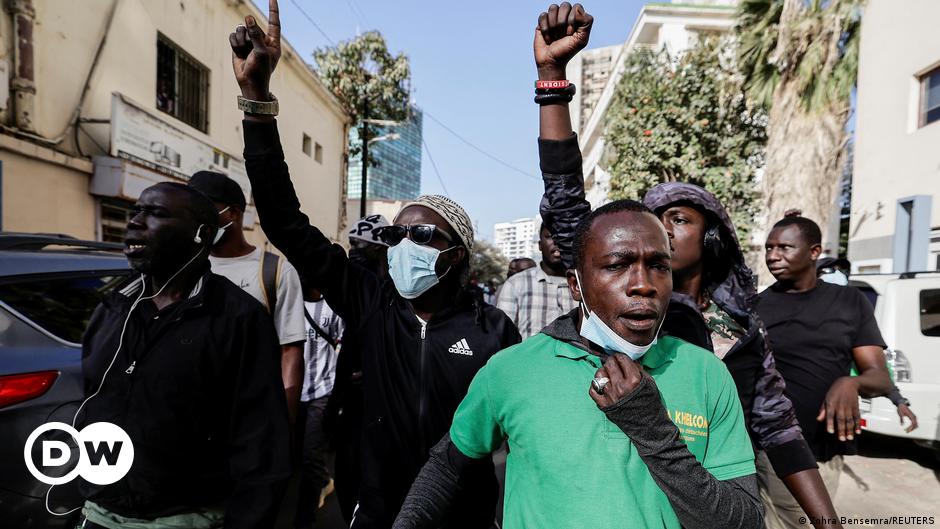Protesters gathered on Monday outside Senegal’s parliament in Dakar to decry the presidential election’s postponement, after authorities restricted mobile internet access on Sunday evening ahead of the demos.
President Macky Sall announced on Saturday that the vote would be postponed to an unspecified date amid a row over the candidate list, prompting angry protests. The vote had been scheduled for February 25, campaigning was about to begin.
Lawmakers are investigating two judges on the country’s Constitutional Court, whose integrity in the election process has been questioned.
Why was the internet cut off?
Senegal’s Ministry of Communication, Telecommunications and Digital Economy said on Monday that internet was cut “due to the dissemination of several hateful and subversive messages relayed on social networks in the context of threats and disturbances to public order.”
Authorities also suspended mobile data last June, amid similarly high tensions in the country.
Meanwhile, protesters rallied outside parliament in the capital Dakar, as a debate started on Sall’s contentious decision to postpone the vote, and consequently, extend his current term.
Security forces used tear gas to disperse the protesters. Several could be heard chanting “Macky Sall dictator.” The Reuters news agency said arrests were made.
The bill debated in parliament would reschedule the vote, initially planned for this month, for a period of at least six months or up to a year, the French AFP news agency said, citing a text of the bill. Sall’s mandate, set to expire in April, would then be extended until a successor is installed.
Concerns for Senegal’s future
Senegal has never postponed a presidential election before.
Sall’s announcement has raised international concern for one of the few stable democracies in West Africa, with the European Union, the Economic Council of West African States (ECOWAS) and former colonizer France all appealing for the vote to be rescheduled at the earliest date.
Sall said he made the call after the Constitutional Court ruled that several candidates could not take part.
Senegal has traditionally been seen as a rare example of democratic stability in West Africa, which has been hit by a series of coups in recent years, including in Mali, Niger and Burkina Faso.
But recent deadly clashes involving opposition supporters and the disqualification of opposition leaders have hurt that reputation.
rmt/msh (AFP, AP, Reuters)


